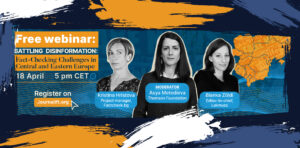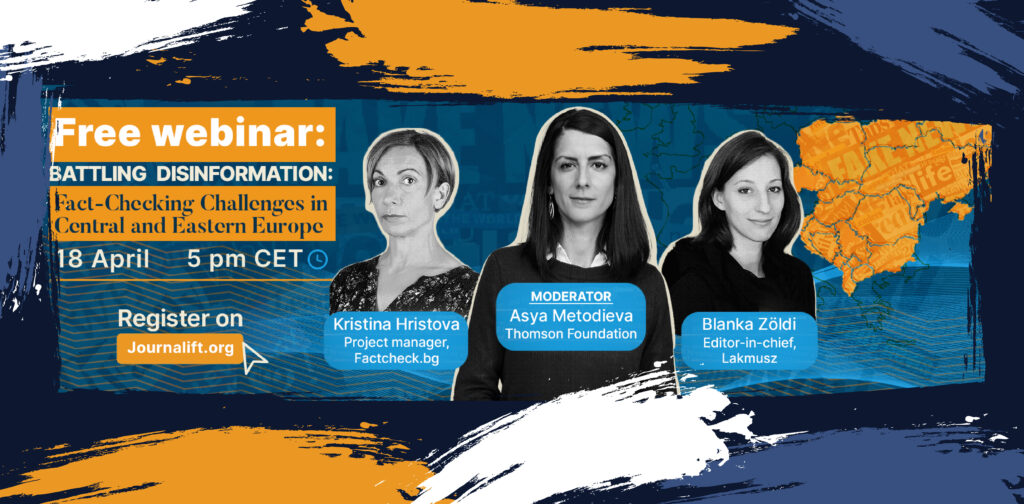Economic perspectives of young people in Serbia and Albania remain limited and often stand as the main factor preventing them from becoming independent earlier in their twenties.
Moving out from a family home requires heavy calculations, planning, and sometimes lucky coincidences, as well as multiple delays if you are a young person in Serbia or Albania. Often with unstable and low-paying jobs, youngsters who want to become independent – to live alone or with a partner – struggle to make ends meet. Some decide to wait for a better time, while others opt for overburdening themselves with work.
For the 26-year-old Marina, becoming independent three years ago was a very demanding endeavour. Recounting her experiences as well as what her friends and co-workers, who went through the same, told her, she puts emphasis on the financial hardships of young people in Serbia.
“Young people are conditioned to work as volunteers and to do low-paying jobs. And then, the question arises as to why young people are leaving the country. It is impossible to rent an apartment in Belgrade, live independently, and have your first job if the average starting salary is 40,000 dinars (340 euro),” said Marina, who works as an editor of a youth magazine and who is a doctoral student of dramatic arts.
Combining work and studies and living in Serbia’s capital seems doable to her due to what she calls “a lucky circumstance” which is that her parents were able to provide an apartment for her. She added that the progress of her relationship “matched perfectly” in terms of timing and influenced the decision to move out from her parents.
“That influenced me to encourage myself to become independent, because then you are not alone, you are alongside another person and it is not difficult. Definitely, if I had decided only on my own, it would have been much later and much more difficult, especially in the economic sense,” she explained.
Similar financial struggles related to starting his adult life outside of his parents’ home are well known to 31-year-old Ersi from the Albanian town of Shkoder. He and his wife, who got married six months ago, now have to work three jobs to cover their monthly living costs and sometimes, as he noted, even that is not enough.
“As a young couple, we have a rent we pay at the end of the month. For me, it is impossible with two salaries to cover the monthly expenses,” Ersi said, adding that with having to work so much, there is little time left for quality family time with his wife.
Desires and realities
After finishing formal education, odds of finding a well-paying job and moving out from their family homes are not so easy in these two countries of the Western Balkans. Eurostat data show that in Serbia, an average young person is 31 years old when they decide to leave their parents’ home, which is significantly above the average, since in the European Union, a young person aged about 26 leaves their parents’ home. There is no available research for Albania that would state how old an average person is when they leave their parents’ home, but some studies suggested it is between 26 and 29.
Research fellow of the Belgrade-based Foundation for the Advancement of Economics, Nemanja Vuksanović, explained how improper working conditions and compensations make young people financially weak.
“Even when they get a job, young people face different negative attitudes in terms of earnings, in terms of the contracts they get and what the research showed is that young people in Serbia, after getting a job, face far lower earnings compared to the average salary received by the working population, and that difference is up to 40 percent,” he argued adding that young people mostly get fixed-term contracts, work overtime with unpaid hours, and are very often employed in the informal sector, where they have no state protection in terms of social or health care.
“After completing the schooling process, a young person in Serbia needs almost two years to get a first stable job. In the European Union, the situation is such that a young person, after an average of seven months, gets the first quality employment. As for the countries in the region, that is, the countries of the Western Balkans, they are quite similar to Serbia in terms of these indicators,” Vuksanović noted.
Nova ekonomija (New economy), portal from Serbia, have organised a survey on its platform, which was filled out by over 350 young readers. One third of the respondents are 18-22 years old, 35 percent are 23-26 years old, and 31.5 percent are 27-30 years old.
The largest number of them said that they are currently unemployed (32.4%), slightly fewer said that they have a permanent contract (30.1%), less than a quarter (23.1%) said they have an insecure job, and the smallest number of young people (14,4%) said they were freelancers. More than half of the young people who filled out the survey (60%) do not live with their parents, and 40% still live in their parents' home.
Respondents most often stated that they live with their parents because they do not have enough money to live independently. Young respondents are divided on how much money is enough to start an independent life.
Tirana-based economist and psychologist Altin Nika explains how young adults naturally want to reach self-actualisation and become independent or create a family of their own but that such desires do not match the needed pre-conditions.
“It is quite normal in the world that at the age of 18 you want to go and break away from the family nest and create your own life,” he said. “What is the difference between a young man in Europe who has the opportunity to be independent, and an Albanian young man who does not have an opportunity to do so. It is due to economic reasons; it is due to social reasons, but above all, economic.”
Nika added that in such circumstances, for a lot of young people in Albania who would ideally be independent if the economic pre-conditions were better, the parents still provide for the basic comforts, such as phone bills and pocket money for social life.
“In the midst of choosing a world where it is completely uncertain what it would be like to be alone the next day, many young people are afraid and stay in the family nest, where they do not pay rent, they have food together with their family. In case they work and have a small salary, they will combine the salary or the pension of the parents and in some form the expenses are lower and they have more freedom. If you ask them, surely their wish is to be independent.”
Employment and housing prospects
Lack of adequate compensation to afford to rent a housing unit and insufficiently paid jobs are the main obstacles to the independence of young people, reaffirmed Jovana Bozičković from the National Youth Council of Serbia. She added that there is also the absence of public state funds and a systematised state policy on this matter, and at the same time, precarious working conditions.
“Young people usually do not have an employment contract, and when they do, it is usually for a certain period of time,” she argued, stating how special service contracts and scholarships, as well as unregistered or cash payments are frequent when it comes to sources of income for young people in Serbia.
“What is very important is that only 15 percent of young people have incomes above the average salary in Serbia, and about 20 percent of young people have some income, which leads to the fact that almost 60 percent of young people have no income,” said Bozičković, reminding of the results from the “Alternative report about the position and needs of the youth in Republic of Serbia 2021”.
The report showed that only 10 percent of young people live in their own apartments, that the vast majority of young people (65 percent) live in a family apartment and that more than 20 percent of them live in a rented place.
The research “Youth in Serbia”, published by The Friedrich Ebert Foundation in 2019, showed that 76 percent of youngsters aged 18-29, live with one or both parents. This group stated this was due to the limited financial resources at their disposal. Data for Albania show that 82 percent of young people live with their parents.
More than one fifth of the unemployed in the Republic of Serbia are young people aged 15 to 30. According to the official data of the Serbian National Employment Service, the number of young people who were unemployed in April 2021 was 115,533, which represents about 21 percent of the total number of unemployed in the country. Compared to last year, youth unemployment increased by 10 percent. In Albania, 19,9 percent of young people (aged 15-29) are unemployed, and the overall unemployment in the country is 11,6 percent.
Cost of living
The average salary for August 2021 in Serbia was 64,639 dinars [550 euro]. The median net salary for the same period amounted to 49,933 dinars [425 euro], which means that 50 percent of employees earned up to the stated amount. The participation of young people in the labour force in the Republic of Serbia is very low according to European standards. NEET (young people who are not employed, not in the process of education or training) amounted to 18,9 percent in 2019 and decreased by 5,6 percentage points compared to 2015, shows the Employment strategy in the Republic of Serbia for the period 2021-2026, published by the National employment service.
The transition from school to the first stable job in Serbia takes a very long time, almost two years. That is much longer than 6,5 months, which is the time for which a young person finds his or her first job after finishing education in the EU. The longer duration of the transition in employment affects the age when young individuals leave their parents’ home and start life alone or with a partner. At the moment, when they start independent life in Serbia, they are six years older than their peers in the EU.
Survey of Nova ekonomija (New economy), portal from Serbia, showed that most young people (34%) believe that 50-70,000 dinars (425-595 euros) would be enough to separate from their parents, while slightly less (33%) think that 70-90,000 dinars (595-765 euros) would provide them to move away. Slightly more than a quarter of the respondents (27%) believe that only more than 90,000 dinars (765 euros) of monthly salary would enable them to move out.
Young people who no longer live in their parents' home usually live alone, with a boyfriend or girlfriend or a roommate. More than 60 percent of young people live in rented apartments, and 15 percent of them live in inherited apartments.
However, even though they live independently, young people still depend on their parents. Only half of the respondents who do not live in their parents' home believe that they are financially independent.
In the second quarter of 2021, the employment rate for the population aged 15-64 was 61 percent in Albania. During this quarter, the total number of employees increased by one percent compared to the second quarter of 2020, and by 2.9 percent compared to the first quarter of 2021. The unemployment rate decreased by 2.5%, compared to the same quarter of 2020 and by two percent compared to the previous quarter.
Independent life is too expensive
Although he would like to do that, the 26-year-old Brian has not yet taken the big step of living alone, separate from his parents. Even with two jobs he does not manage to have enough income to be independent and create the future alone.
“If it was my choice, I would live alone, but here in Shkoder it is so hard to do it. I have a good job but still it is not enough because the salaries in Albania are so low and I can’t live on it,” he said adding that when one lives alone, as he would like to, there is an obligation to pay for the rent, energy, water and other bills, as well as for food and other items a person needs.
“I’m talking about wanting to live alone, because when you are a couple, you have other responsibilities and you need to earn more. It is so hard to do this in Albania.”
To rent a flat in Shkoder it would cost 12,000 to 18,000 Albanian Leke [100 – 150 €] while in the capital Tirana this amounts to 200-250 €. The average gross salary in Albania in the public sector is about €550 while in the private sector €410. The minimum wage in Albania is 245€.
For the 27-year-old graduate gastronomer Miloš from Belgrade, the same struggle. Finding a job as a caterer is not hard for him but what he can earn is insufficient as in order to earn enough one has to invest a lot of time, taking it from quality time for himself and for friends and family.
“Young people in Belgrade generally cannot work for less than 80-90 thousand dinars [680 – 765 euro] if they want to become independent. Everything below that is not enough for independent living. When young people realise how much only the bills are in Belgrade and when the other part of the salary goes only for groceries, it demotivates them to move away on their own and start living independently,” he argued.
Independent living for the 24-year-old Belgrade student of a master programme in chemistry Olivera means that she would rely only on herself for finances and housing. Still living with her parents and burdened with the obligations at the faculty, she is still not looking for a job.
“Somehow it is natural that after the age of 25, when you graduate from college and decide what you will do in life, you find a job, live separate from your parents, and not be financially dependent,” Olivera said, but added that she thought young people in Serbia are not trained enough during the studies on how to immediately switch to a job search.
“Professors and mentors could explain to us how to manage more easily when we finish college and whom to turn to,” she said, explaining how she sees finances as a main obstacle in beginning an independent life.
“As far as I have heard the state has launched the programme ‘My First Salary’, the program for graduates who do not have work experience, or have up to six months of work experience, but in my opinion that is not enough. The programme can provide us with the first job and the first salary, but if that salary is the minimum wage, you cannot become independent in the sense of paying for an apartment, bills, life in Belgrade or any larger city,” said Olivera.
She noted that many of her colleagues, whose families do not live in Belgrade but finance their studies, sometimes prolong their master studies in order to stay in a dorm. For her, the idea of moving out from her parents and renting a place on her own in her hometown, comes as a somewhat less stressful idea than her peers, whose families are elsewhere.
“I have some certainty that even though things don’t turn out well with the job, I have a place to go back to,” Olivera noted.
Katarina Baletić & Nevena Petaković in Belgrade and Teodor Gjerga in Shkoder































